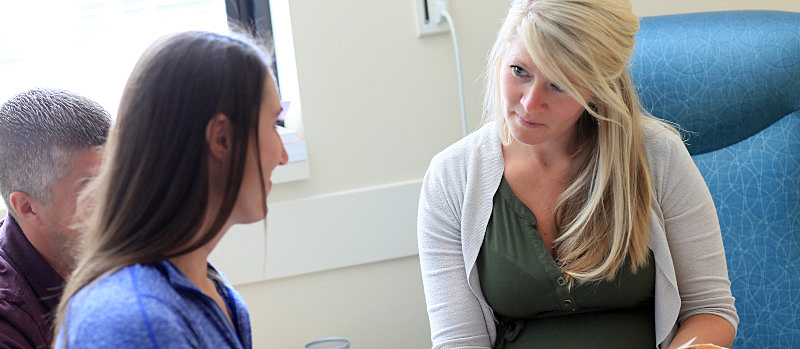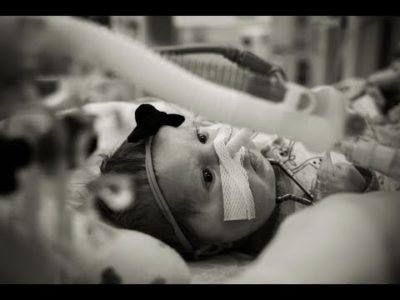For most expecting parents, learning that you’re pregnant and waiting for your baby to arrive is an exciting, joyous time. You track how your baby is developing. You wonder if your baby is a boy or girl. However, when you learn that your baby is not healthy and something may be wrong, time just sort of stops. You realize that the life you had imagined is not going to be the same and your whole world is turned upside down.
That was certainly the case for us when we learned at our routine 20-week ultrasound that our baby might have congenital diaphragmatic hernia (CDH). CDH happens when the diaphragm doesn’t develop fully and ultimately affects the baby’s lungs. This condition is rare, occurring in about 1 of every 2,500 births. Like many fetal abnormalities, most parents have never heard of it until they learn that their baby may have it.
When you first learn of your diagnosis, you likely won’t be in any condition to ask your doctor specific questions. At least, my husband and I weren’t. We were in too much shock to absorb information or have any sort of productive conversation during that appointment. But when we went back for our next visit, we came prepared.
I did a lot of research on my own so that I could ask my doctors the right questions about our situation. It is important to gather information from trusted sources and to be cautious of what you may read on the internet or social media groups. Like most health conditions, your doctor is the best resource to obtain information about your and your baby’s specific condition. Regardless of your diagnosis, I’d like to share some questions that might be helpful as you continue in your pregnancy.
Questions to Ask Your OB/Gyn or Maternal-Fetal Medicine Specialist:
- Can I continue seeing you or do I need to see a different doctor or team?
- Is this diagnosis life threatening to me or my baby?
- Are there any procedures during pregnancy or afterwards that can help my baby?
- Do you recommend I have an amniocentesis or any other type of diagnostic test? What are the risks/benefits of these tests?
- What will the rest of my pregnancy look like? How often will I need to be seen and what will happen at each appointment?
- Are there specific conditions or symptoms that I might experience during my pregnancy that are common for this diagnosis?
- Is there anything I should do or avoid doing because of this diagnosis?
- What does my birth plan look like? If my baby needs to go to the NICU following birth, will I deliver there at that same hospital or will my baby need to be transported?
- Are there any support services or groups specific to this condition that you recommend I investigate?
- How do you suggest I manage stress during my pregnancy?
This may feel like a lot of information to process – and it is. When my pregnancy became high risk and my baby was diagnosed with a fetal abnormality, I felt completely powerless and like I had no control. However, there were two things that I could control which helped us get through it: being informed about my baby’s condition and choosing the right care team. During our team meeting, we had an entire medical team in one room to answer all of our questions. This made me feel more in control and like I was a part of the team. Additionally, knowing that Dr. Lim had performed hundreds of CDH repair surgeries and had experience and the ability to perform the fetoscopic endoluminal tracheal occlusion (FETO) procedure if my baby needed it, gave me the confidence that we were in the right place.
I’m not going to lie – it was not an easy journey, but hopefully this information will help you as you continue yours. Our daughter is now home and is thriving. She’s walking and talking and is now a “typical” 2-year-old with a gastrostomy tube (G-tube). She’s even eating on her own now and we’re hoping to fully wean her off of her G-tube very soon. We couldn’t be happier with where she is.




